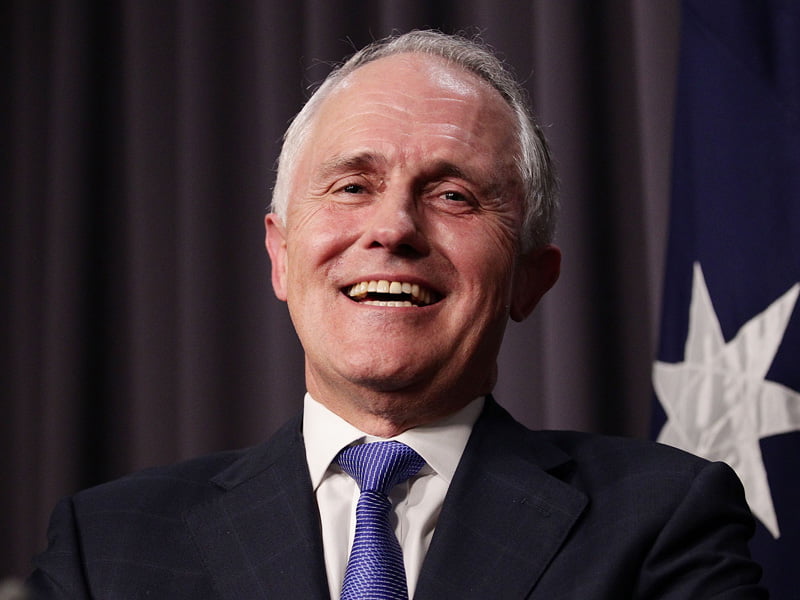The federal government’s decision to jointly fund a $200 million undersea cable linking the Solomon Islands and Australia that freezes out initial contract winner Chinese telco Huawei, has received bi-partisan support from the Labor opposition.
The joint funding arrangement was the headline item to come out of Prime Minister Malcolm Turnbull’s meeting with his Solomon Islands counterpart Rick Houenipwela on his first official visit to Australia in the role.
Mr Turnbull said a new bilateral security agreement with the Solomon Islands will replace the 14-year-old Regional Assistance Mission to Solomon Islands (RAMSI) and expand cooperation to include cyber security and telecommunications issues.

The announcement was not unexpected. The two prime ministers first confirmed the proposal for the 4,000-kilometre, 2.5Tbps cable at the Commonwealth Heads of Government meeting in London last April, at which time it was reported Australia would cover the majority of the cost.
The $200 million cable project will be funded entirely from within Australia’s foreign aid budget and as such it has won support from the Labor opposition.
A spokesperson from shadow foreign affairs minister Senator Penny Wong’s office said that the government had “taken its eye off the ball in the Pacific” after having cut $11 billion from Australia’s overseas aid budget.
“We must play a greater role in our immediate region, or others will fill the gap we leave,” the spokesperson said.
The government has framed the cable project as a regional modernisation program, however its provenance has been more controversial.
The Solomon Islands signed a contract with Huawei to be the main supplier for the cable project last July. However, later that month Solomon Islands’ news outlet, the Island Sun, was reporting that Australian Secret Intelligence Service director general Nick Warner had advised Mr Houenipwela’s predecessor, Manasseh Sogavare, that the cable’s operator would be denied a landing permit in Australia if Huawei was retained as the key equipment supplier.
Mr Houenipwela confirmed as much during an official visit to New Zealand last week saying “concerns” from Australia had “triggered” the country’s decision to drop Huawei.
The government’s relationship with China has appeared to remain steady since banning Huawei from participating in NBN contracts, but extending that influence into the Pacific could put that stability to the test.
The Solomon Islands’ press has perceived the situation as a slight against the country’s sovereignty. There was also reportedly anger within quarters of the Solomon Islands’ government that Canberra’s message arrived nearly a year after the Solomon Islands selected Huawei as its preferred supplier and that work on the project — due for completion 2019 — was about to get underway.
During press conferences, Prime Minister Turnbull has repeatedly dodged questions as to what specific security concerns the government has with Huawei, including during questioning after delivering the government’s response to the Royal Commission into Institutional Child Sexual Abuse.
“Our concern is ensuring that Australian aid provides the support for economic and social development here in the Pacific and that’s what we’re providing in building this cable,” Mr Turnbull said.
Labor for its part appeared to support the government’s security stance on Huawei.
“We will always take the advice of our security agencies. We won’t comment on what that advice may be. Of course it is positive that Australia is now involved in such a significant project,” Labor’s spokesperson said.
The situation has highlighted uncertainties around the government’s proposed Foreign Influence Transparency Scheme legislation. Under the proposed legislation organisations and individuals working under the direction of foreign governments and parties need to declare themselves on a register to limit foreign interference.
Recent amendments to the legislation appear designed to ensure that foreign companies operating in Australia escape the obligation, however yesterday the government was facing tough questions on Huawei’s status under the new legislation.
Attorney-General Christian Porter said that it was a question each company had to assess individually. He said that “most importantly anyone who is employed or acting under their instructions in Australia and engaging in political communication or lobbying or parliamentary lobbying need to make that assessment themselves so, ultimately that’s a question that needs to be asked by the company itself and the people working for it”.
In recent weeks, Huawei Australia chair John Lord has conducted radio interviews defending the company from assertions by Labor MP Michael Danby that the company should be excluded from the 5G network in Australia due to its ties with Beijing. Huawei has also commissioned a paper on the competitive impacts of being excluded from 5G tenders.
In the case of the Solomon Islands, Huawei is understood to have won the contract after undercutting its rivals by $60 million.
Do you know more? Contact James Riley via Email.

